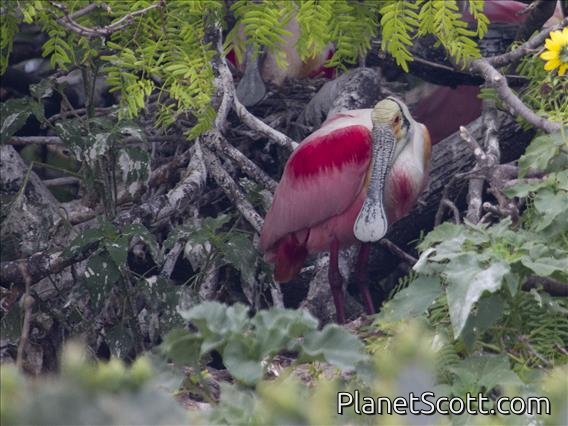Roseate Spoonbill (Platalea ajaja)

Roseate Spoonbill (Platalea ajaja)
×


Roseate Spoonbill (Platalea ajaja)
About Roseate Spoonbill (Platalea ajaja)
- Kingdom: Animals
- Phylum: Chordates
- Class: Birds
- Order: Pelicans
- Family: Ibises and Spoonbills
The roseate spoonbill is a social wading bird of the ibis and spoonbill family, Threskiornithidae. It is a resident breeder in both South and North America. The roseate spoonbill's pink color is diet-derived, consisting of the carotenoid pigment canthaxanthin, like the American flamingo.
Source: Wikipedia
Trips
Visits
-
2002-01-01
San Blas Ponds, Mexico× -
2005-02-18
Buenos Aires Reserva Costeneras, Argentina× -
2007-10-10
La Mancha, Mexico× -
2008-01-06
San Blas - Fort, Mexico× -
2008-01-07
San Blas Ponds, Mexico× -
2009-01-14
Cozumel, Mexico× -
2009-01-18
Lamanai Ruins River Trip, Belize× -
2009-02-18
Parque National Palo Verde, Costa Rica× -
2011-07-15
Pantanal, Brazil× -
2013-04-16
Aransas NWR (CTC 037) (Aransas Co.), United States of America× -
2013-04-17
Brazoria NWR (UTC 108), United States of America× -
2013-04-18
Galveston Island, United States of America× -
2013-04-19
Bolivar Peninsula, United States of America× -
×
-
×
-
×
-
×










